What is Deworming for Cats? A Must-Know Guide!

Alright, let’s talk about something really important—worms in cats. You love your cat, right? You feed them, play with them, and make sure they’re happy. But what if we told you that, right now, your cat could have tiny worms inside their body, stealing their nutrients and making them sick? Sounds scary, doesn’t it?
That’s where deworming comes in. What is deworming for cats? It simply means getting rid of those worms using special medicine. It’s easy, it’s necessary, and it keeps your cat healthy. Worms can cause weight loss, vomiting, diarrhea, and even more serious health problems. But don’t worry—deworming is simple, and we’ll explain everything you need to know.
In this guide, we’ll walk you through how cats get worms, how to spot the signs, the best deworming treatments, and how often you should do it. Trust us, once you know this stuff, keeping your cat safe from worms will be super easy.
Let’s get started!
What is Deworming for Cats and Why is It Necessary?

Deworming is the process of removing harmful worms from your cat’s body using special medicine. Worms can cause serious health problems for cats. If left untreated, they can lead to:
- Weight loss
- Vomiting and diarrhea
- Lack of energy (lethargy)
- Anemia (low red blood count)
- Serious organ damage
Some worms can even spread to humans, especially children. This is why regular deworming is very important.
Common Myths About Cat Deworming
- My cat stays indoors, so it doesn’t need deworming. (False! Indoor cats can still get worms from fleas, food, or other pets.)
- I don’t see worms in my cat’s poop, so it doesn’t have worms. (False! Some worms are too small to see.)
- Deworming once is enough. (False! Cats need a deworming schedule to stay protected.)
How Do Cats Get Worms?
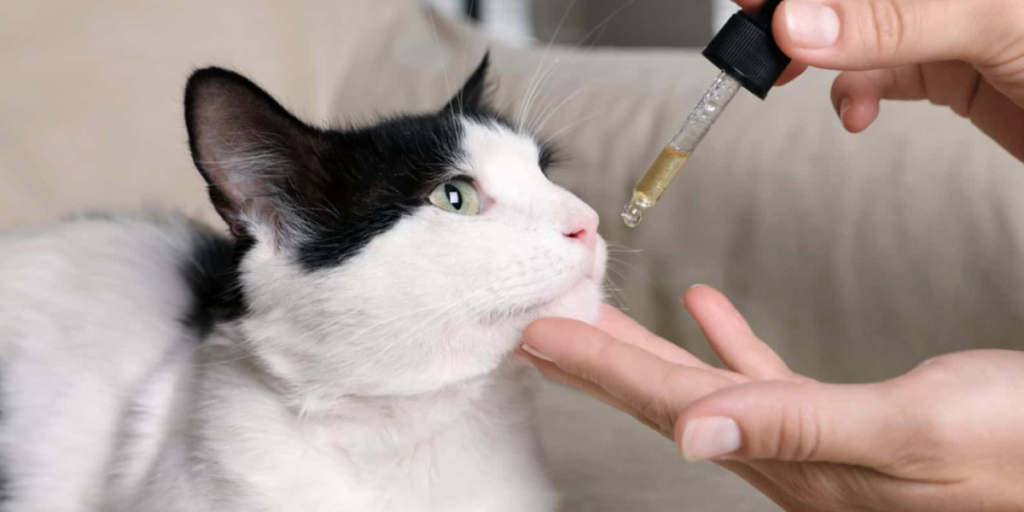
Cats can get worms in many ways:
- Fleas – This is the most common reason. Fleas carry tiny worm eggs. When your cat grooms itself and accidentally swallows a flea, boom—worms start growing inside.
- Hunting – If your cat goes outside and catches mice, birds, or even insects, they can pick up worms from these animals. Outdoor cats are at a much higher risk.
- Raw Food – Some people feed their cats raw meat, but here’s the problem—uncooked meat can have worm eggs in it. If your cat eats it, they might end up with worms.
- Litter Boxes – Worm eggs from infected poop can stay in the litter. If your cat steps in it and then cleans their paws, they could swallow the eggs without even knowing it.
- Other Pets – If you have a dog or another pet that already has worms, your cat can catch them, too. Worms spread easily between animals.
Common Types of Worms in Cats
Here’s a table of the most common worms in cats and their effects:
| Type of Worm | Symptoms | How Cats Get Infected |
| Roundworms | Bloated belly, vomiting, diarrhea | Ingesting contaminated poop, mother’s milk |
| Tapeworms | Weight loss, itchy bottom | Swallowing fleas or eating infected prey |
| Hookworms | Bloody stool, anemia | Walking on contaminated soil |
| Whipworms | Chronic diarrhea, weight loss | Eating infected poop or soil |
| Heartworms | Coughing, breathing problems | Mosquito bites |
Signs That Your Cat Has Worms
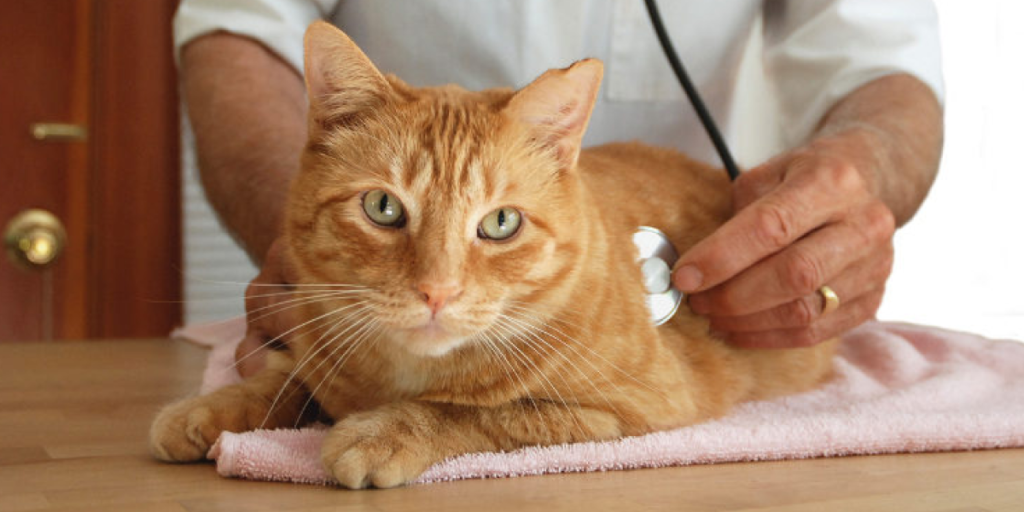
If your cat has worms, there are some clear signs to look for.
You might notice worms in their poop or vomit, which often look like little white or spaghetti-like worms. Another sign is a bloated belly, especially in kittens. They may have diarrhea, sometimes with blood, which can be a sign of a worm infestation.
You might also notice that your cat is lethargic, meaning they’re tired all the time and not as active as usual. If your cat keeps dragging their bottom on the floor, it’s a sign they’re itchy due to worms. Finally, if your cat has an increased appetite but is losing weight, it’s another sign of worms at work.
These are all important things to keep an eye on to help catch worms early.
How Vets Diagnose Worms
When you take your cat to the vet, they can figure out if your cat has worms through a few methods.
They’ll start with a fecal test, where they examine a sample of your cat’s poop under a microscope to look for worm eggs. If they suspect heartworms, they may also perform a blood test, which helps detect these harmful worms that live in the heart.
A physical exam is another way to spot worms, as the vet will check your cat’s belly, skin, and other areas for any signs of a worm problem, like bloating or discomfort.
These steps help your vet figure out what’s going on so they can recommend the best treatment for your cat.
How Deworming Works
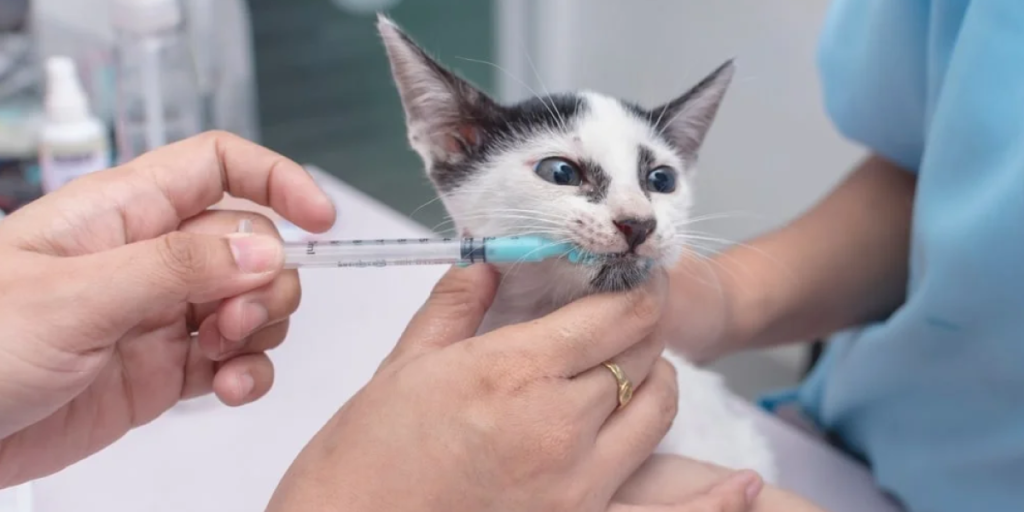
Deworming medicine kills worms inside your cat’s body. Some medicines paralyze worms, while others dissolve them, so they pass out in poop.
Types of Deworming Treatments
| Type | How It Works |
| Tablets | Given orally to kill worms inside the gut |
| Spot-on | Applied to the skin; absorbs into the bloodstream |
| Injections | Given by a vet for serious cases |
Prescription vs. Over-the-Counter
Okay, so when it comes to deworming, you have two options:
- prescription dewormers
- and over-the-counter (OTC) dewormers.
Prescription dewormers, which you get from the vet, are usually stronger and safer for your cat. They’re made specifically for your cat’s needs and are more effective at getting rid of worms. They also have fewer side effects.
On the other hand, over-the-counter dewormers are easier to get, but they might not work as well. They can still help, but sometimes they’re not as powerful, and they may not treat all types of worms.
So, if you really want to make sure your cat gets the best treatment, it’s usually better to go with what your vet recommends.
Is There Any Difference in Deworming Between Kittens and Cats?
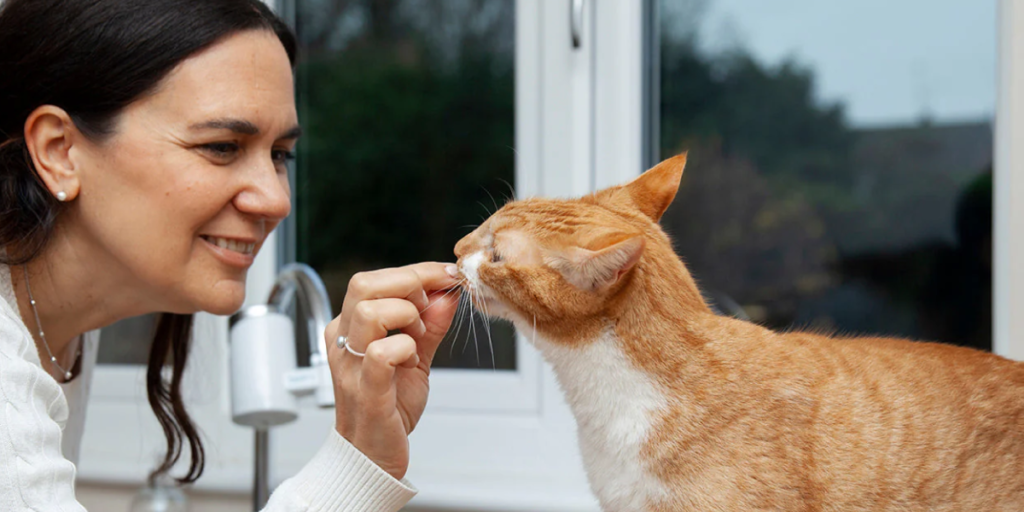
Yes, there is a difference in deworming kittens and adult cats. The kitten deworming schedule is that it needs to be dewormed more frequently—usually starting at 2-3 weeks old, then every 2 weeks until they are about 3 months old.
For adult cats, deworming is typically done every 3 months unless they are at higher risk, such as outdoor cats. Always use kitten-safe dewormers for young ones and follow your vet’s advice for the correct treatment.
How Often Should You Deworm Your Cat?
Deworming your cat regularly is super important to keep them healthy.
Kittens need deworming every two weeks until they are three months old because they are more vulnerable to worms. Adult cats should be dewormed every three months to stay protected.
Outdoor cats need deworming more often, about every 1-2 months, since they have a higher risk of getting worms from hunting or being around other animals. If your cat is pregnant, it’s important to deworm her before she gives birth so the kittens don’t get infected.
Keeping up with a proper deworming schedule helps prevent serious health problems and keeps your cat feeling great!
Best Deworming Medications for Cats
Here is a table of the best deworming medications for cats available in Bangladesh:
| Dewormer | Active Ingredients | Targeted Parasites |
| Helminticide-L | Pyrantel Pamoate, Febantel, Praziquantel | Roundworms, Tapeworms, Hookworms, Whipworms |
| Kiwof Cat Dewormer | Praziquantel, Pyrantel Pamoate | Tapeworms, Roundworms, Hookworms |
| Fenbendazole (Various Brands) | Fenbendazole | Roundworms, Hookworms, Whipworms, Some Tapeworms |
| Drontal Cat Dewormer | Praziquantel, Pyrantel | Various Intestinal Worms |
| WormEze Kitten Deworming Syrup | Piperazine Citrate | Roundworms (suitable for kittens) |
Make sure to consult a veterinarian before administering any medication to ensure the right dosage and frequency for your cat.
At Vet Venue, we provide personalized prescriptions to ensure your pet gets the right medication for their specific health needs. Our expert veterinarians guide you every step of the way for safe, effective treatment and recovery.
Natural Deworming Alternatives
- Pumpkin seeds – Help remove worms naturally.
- Diatomaceous earth – Can be added to food to kill parasites.
- Garlic (small amounts) – Has anti-worm properties but should be used with caution.
How to Deworm a Cat at Home
Deworming your cat at home is simple if you follow the right steps.
First, buy a vet-approved dewormer to make sure it’s safe and effective. Then, check the correct dosage based on your cat’s weight—giving too much or too little won’t work properly.
Next, give the medicine—it can be in the form of a tablet, liquid, or spot-on treatment, depending on what your cat is comfortable with. After that, watch your cat for any side effects like vomiting or diarrhea—these are rare but can happen.
Finally, repeat the treatment as per the schedule recommended by your vet to fully get rid of worms and prevent reinfection.
Preventing Worms in Cats
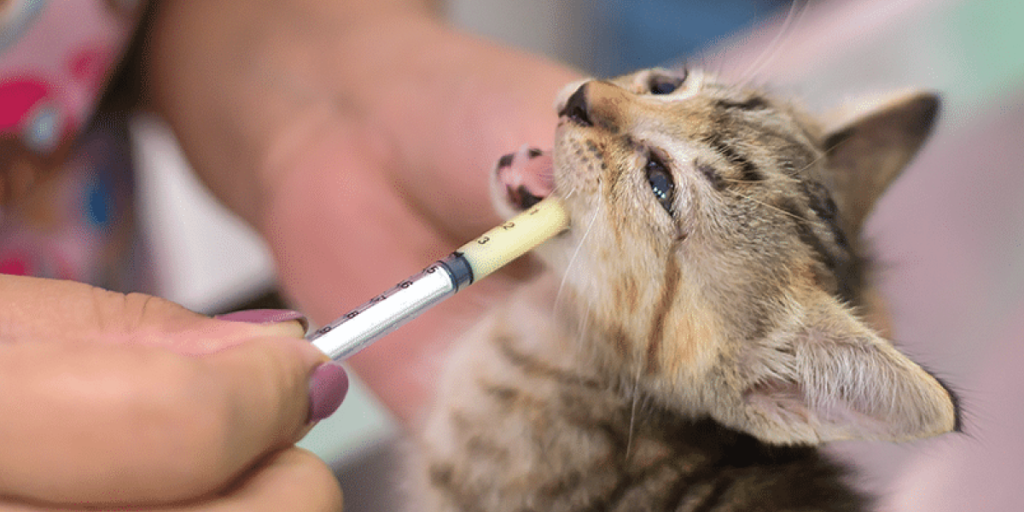
Stopping worms before they become a problem is the best way to keep your cat healthy. Use flea prevention regularly, as fleas are one of the biggest causes of worms.
Clean the litter box daily to remove any worm eggs before your cat gets reinfected. Always wash your hands after handling cat poop or soil since some worms can spread to humans.
Avoid feeding raw meat, as it can contain worm eggs—cooked food is much safer. And most importantly, take your cat for regular vet checkups so worms can be detected and treated early before they cause serious health issues.
Wrapping Up
So, hopefully, you now fully know what deworming for cats is. Deworming keeps your cat healthy, active, and happy by protecting them from dangerous worms. Regular deworming prevents infections and also keeps your home safe from parasites that can spread to humans.
Don’t wait for symptoms! Follow the right deworming schedule to stop worms before they cause serious health problems.
Final tip: Always check with your vet for the best cat deworming medicine and treatment plan—your cat’s health is worth it!
Besides, you can read the blog to find out how long cats live and simple tips to help your cat live a longer, healthier life!
| FAQs Is it necessary to deworm a cat? Yes! Deworming is important because worms can make cats sick, thin, and weak. Kittens are in more danger, and some worms can even spread to people. Regular deworming keeps your cat safe and healthy—just follow your vet’s advice! What does dewormer do for cats? A dewormer kills and removes worms from a cat’s body. It stops worms from making your cat sick, weak, or uncomfortable. Regular deworming keeps your cat healthy, active, and safe from infections. How do I know if my cat needs deworming? If your cat has worms in poop, diarrhea, vomiting, or a bloated belly, it may need deworming. Other signs include weight loss, itching, or being tired all the time. Even if there are no symptoms, regular deworming is important to keep your cat safe. How often to deworm indoor cats? Indoor cats should be dewormed every 3 months to stay safe from worms. Even if they don’t go outside, they can still get worms from fleas, food, or other pets. Kittens may need more frequent deworming in the first few months. How to deworm a cat without a vet? To deworm a cat without a vet, you can buy a vet-approved dewormer from a pet store or online. Make sure to follow the instructions on the label for the correct dose. Monitor your cat for side effects and repeat the treatment as needed. Can Humans Get Worms from Cats? Yes! Some catworms can infect humans through a process called zoonotic transmission. To stay safe, always wash your hands after touching your cat or cleaning the litter box, keep your home clean, and deworm your cat regularly to stop the spread of worms. When to See a Vet for Deworming Services? Visit a vet if your cat has severe symptoms like bloody diarrhea or extreme weight loss, if you’re unsure about the right deworming schedule, or if over-the-counter treatments aren’t working—a vet can provide stronger, more effective solutions. |